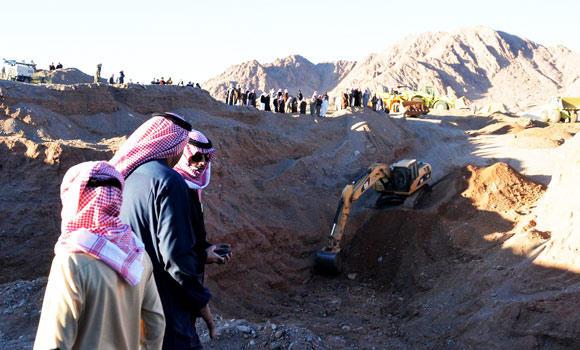
Jeddah, Dec 27: Experts from Saudi Aramco and the Saudi Geological Survey (SGS) have joined the bid to free six-year-old Lama from a well in Haql near Tabuk.
Lama had fallen into a 100-meter-deep well seven days ago while picnicking in the area.
Adverse weather conditions have hampered the weeklong operation to rescue Lama. “Falling loose soil and rains have complicated the operation,” a Civil Defense official told Arab News.
Zuhair Nawab, president of the SGS, said he would send an expert team immediately to the site. “They will advise the Civil Defense and other government agencies on how to reach the girl without any problems,” Nawab said.
Saudi Aramco sent experts and equipment to the Civil Defense on Thursday while the Kingdom's chief geologist Ahmed Salem Basamad, his deputy, hydro expert Ehab Abdul Aziz Al-Ashi, and high-ranking Civil Defense officials have gone to the site to supervise the operation.
Officials stopped the search operation on Wednesday after experts warned that mudslides near the well could endanger the lives of scores of Civil Defense officers involved in one of the largest rescue operations of its kind in the Kingdom, said Badar Al-Jahani, a Saudi journalist, who spoke to Arab News over the phone from the site.
Rescuers have drilled a borehole parallel to the well to reach the child, said Maj. Gen. Mastour Al-Harithy, director of the Civil Defense in Tabuk, who has been camping at the site for the last seven days.
The Ministry of Health has set up a medical facility to treat rescue workers who have been working continuously at the site for a week. The medical team also provided treatment for the girl’s father who has been at the spot for the last seven days.
Eyewitnesses told Arab News over the phone that hundreds of concerned and curious people are attempting to reach the area but security officers have prevented them from doing so.






Comments
Add new comment